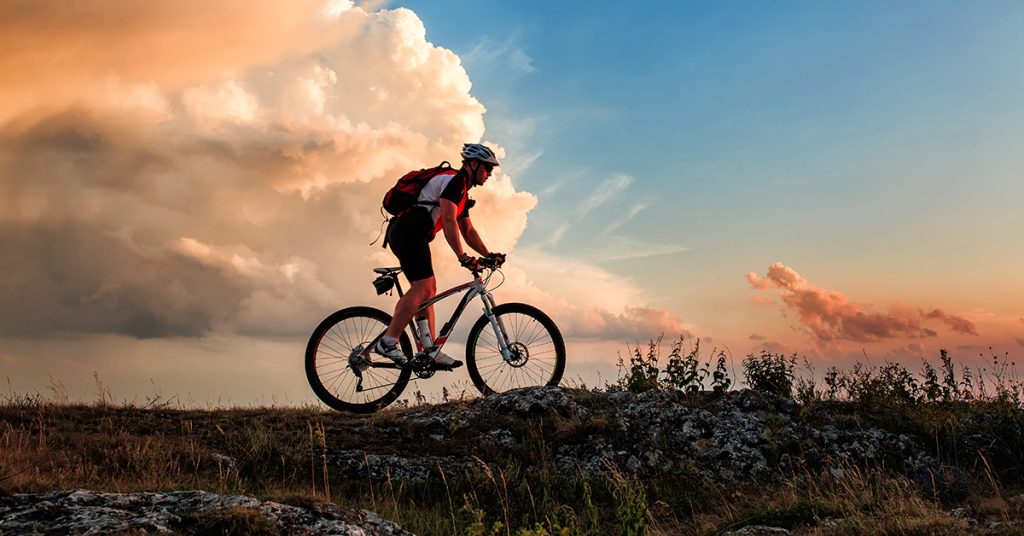Posts Tagged ‘Massachusetts COVID-19 resources’
COVID-19 Safety for Cyclists and Pedestrians in Boston and Massachusetts

Massachusetts safety groups share COVID-19 advisories for cyclists and pedestrians.
At Breakstone, White & Gluck, our attorneys encourage you to follow the Massachusetts “stay at home” advisory. When you go out for essential errands, the CDC advises you to wear a face mask and follow social distance guidelines, staying at least 6 feet apart from other people.
Yet it is also important to get outside for a few minutes of fresh air each day, even if you just stay in your own yard or walk down the street. With many of us so distressed, this can be hard to do, but if you are healthy and able, we have compiled these safety tips from the CDC, the Massachusetts Covid-19 website and bike and pedestrian groups we support.
Massachusetts Stay at Home Advisory
State officials have advised light exercise, such as a walk or run around your neighborhood, is acceptable but you have to follow social distancing and other guidelines. Playing close contact sports with others is against the state guidelines. Mass DPH Health Advisory: Stay at Home (March 24, 2020).
MassBike
MassBike issued a COVID-19 safety update, dated April 19, 2020, saying its response has generally been to follow the Massachusetts Governor’s Office and the Centers for Disease Control. Cyclists can ride, “But MassBike certainly agrees with, and wants to reiterate, the official message of #StayHomeSaveLives. We encourage you all to stay home as best you can.”
MassBike’s safety tips included:
- Never ride if you are ill or are experiencing of COVID-19.
- Ride solo or only with others you live with.
- Wear a mask.
- Carry your supplies so you can avoid stopping and and interacting with people.
- Look for a place where others are not riding.
- Ride with caution.
The CDC recommends people stay at least six feet apart, but how can you measure distance when you are moving? That’s a good question and in its post, MassBike mentioned a Belgium study on social distancing on bikes. The study advises people to walk about 12-15 feet away to maintain safe social distancing or about 30 feet for running and slow biking. When cycling fast, bicyclists should keep at least 60 feet apart.
Boston Cyclists Union
The Boston Cyclists Union says yes, cyclists can still ride. If you do, the organization recommends riding alone or only with others in your home. It also suggests wearing a mask to protect yourselves and others. Read the Boston Cyclists Union advisory, April 1, 2020.
WalkBoston
WalkBoston released an update on March 27, 2020. It also warned the public to practice social distancing when walking. The organization, active in Boston and across Massachusetts, offers a weekly email newsletter.
Massachusetts City and Town Advisories on Expanded Recreation Areas
Some communities are talking about opening up roads so pedestrians and cyclists have more room to exercise and follow social distance guidelines. In Brookline, the Transportation Board removed parking and traffic lanes and opened up parts of Beacon Street, Brookline Avenue and Harvard Street to pedestrians.
The City of Boston also closed three Department of Conservation and Recreation (DCR) parkways to traffic, giving pedestrians and cyclists more room. These include the William J. Day Boulevard, Francis Parkman Drive and Greenough Boulevard.
In Cambridge, the City Council was also considering closing roads along Memorial Drive.
Final Note:
In addition to taking COVID-19 safety precautions, cyclists must remember to follow fundamentals, such as always wearing a properly-fitted helmet and using rear and front lights on your bike. If you need a new helmet, supplies or a tune-up, local bike shops are considered “essential businesses” and are allowed to open. Finally, both cyclists and pedestrians can protect themselves by wearing brightly colored clothing or a neon safety vest to stand out. While traffic has decreased on many roads, there are still many drivers out and it’s important to be vigilant about safety.
If you are interested in learning more about bike safety, consider checking out our articles:
Other COVID-19 Resources
CDC Advisory on Protective Face Masks
State of Massachusetts COVID-19 Updates
Consumer Reports, “Bike Riding Safety During the Coronavirus Pandemic,” April 10, 2020
Free Legal Consultation – Boston Personal Injury Lawyers
Breakstone, White & Gluck supports cycling and pedestrian safety in Massachusetts. Through our Project KidSafe campaign, we are committed to protecting children on bicycles from concussions and traumatic brain injuries.
If you have been injured, learn your legal rights. Breakstone, White & Gluck represents those injured by negligence and recklessness throughout Massachusetts, including in car accidents, truck accidents, motorcycle accidents, bicycle accidents and pedestrian accidents. For a free legal consultation, contact us at 800-379-1244 or 617-723-7676. You can also use our contact form.
COVID-19: How Can You Help in Massachusetts?
 We all want to get through the COVID-19 crisis. The best way to make a positive impact is to stay home as much as possible. As you wait it out, remember you are living with temporary restrictions. But there are still some important steps you can take to help yourself, your family, community and local businesses now and in the weeks to come.
We all want to get through the COVID-19 crisis. The best way to make a positive impact is to stay home as much as possible. As you wait it out, remember you are living with temporary restrictions. But there are still some important steps you can take to help yourself, your family, community and local businesses now and in the weeks to come.
Wash Your Hands. This is a critical step, especially now. Read the CDC’s page, “When and How to Wash Your Hands.”
Protect Your Home and Family Members. The CDC has published an easy-to-print COVID-19 household checklist. Put this on your refrigerator or somewhere visible so everyone in your family can see it. Check out these other CDC advisories too: cleaning and protecting your home and managing stress and anxiety. Share these with family members so you can help each other keep up a routine, along with regular exercise and proper rest.
Social Distancing. Stay home as much as you can. If you have to go out, stay at least six feet away from others. Don’t shake hands, hug or make physical contact.
Look for COVID-19 Messages on Business Websites. Look for COVID-19 messages on websites – before you visit the grocery store, pharmacy or any business. Many businesses are closed due to Gov. Charlie Baker’s “Stay-at-Home” – Essential Services Only order. Grocery stores and pharmacies remain open as essential services. Do your part as a customer and follow their guidelines to protect their hardworking employees and the public.
Connect. Stay connected to friends and family, especially older adults who live alone. Not just by social media or text messaging. Make regular contact by phone or even better, through a video chat tool. This way you can really see and hear how your loved ones are doing – and if they need your help in some way.
Follow State and Local Orders and Updates. As a Massachusetts resident, the best way to to stay informed is to watch the daily briefings from Gov. Charlie Baker. You can follow the Massachusetts state briefings on TV or online (www.mass.gov/covid19). You can also sign up for text messages (COVIDMA to 888-777). Another resource is the Massachusetts 211 website or you can call 2-1-1.
Also follow your town, city or child’s school on Facebook and local websites. Sign up for email newsletters. If you have an older parent – or a grown child living away from home – sign up for alerts about their community as well. Mention these notices to them and ask if they need help following the orders.
Housing. You should not have to move during this time. Landlords should not pursue evictions. The Housing Court has rescheduled all non-emergency matters until April 21, 2020 or later. The court vacated all default judgments entered between March 1 and April 21.
Everyone is struggling right now. Keep your cool, but also keep good records. Ask your landlord to put any instruction or request in writing even if that’s not your normal practice. Digitally file all e-mails or letters by date so you can easily access them (save them as PDF files). Still take photos and report serious safety violations so you are safe staying in your apartment.
Encourage family members who rent to keep neat files too – and ask them to share communications with their landlords with you as they come in. This way, you will know if they are safe, if you need to help and you won’t have to play catch up learning what happened.
This is also a stressful time for homeowners. Again, take a deep breath and remember you have legal rights. In Massachusetts, to start foreclosure, a mortgage lender must issue a homeowner a default notice and a 90-day “right-to-cure” period, during which you must make all your missed payments. Homeowners can also use this time to apply for a loan modification.
Legal Assistance. Breakstone, White & Gluck may be able to assist you with an injury claim. But there are many issues arising during the COVID-19 outbreak – about unemployment, housing, health insurance and other public benefits. During the COVID-19 outbreak, look online first. If you have a question, visit the Massachusetts Legal Answers website, operated by the American Bar Association.
If you would like to consult an attorney, visit the Massachusetts Bar Association Lawyer Referral Service.
Another resource is Attorney General Maura Healey’s office, which accepts consumer complaints and can help explain your legal rights. Having trouble with a certain company? Call and ask how many others have lodged the same complaint and what steps you can take.
These resources can help you gain a few insights about Massachusetts law so you can decide whether you need a lawyer. With those insights, good record keeping and a commitment to be patient, you may be able to handle your problem without a lawyer.
Donate Blood. The American Red Cross is looking for healthy individuals to donate blood or platelets.
You can help by making an appointment to donate. Visit the American Red Cross website and search for blood drives in your area. Be prepared to be flexible and schedule an appointment a few days or weeks out due to the emergency situation. The American Red Cross has outlined safety protocols for collecting blood during the COVID-19 crisis. It also offers American Red Cross mobile apps to help you track blood donation appointments and follow other relief work.
Make a Financial Donation. We understand there is great financial uncertainty right now. But if you can, consider these funds and organizations which are helping Massachusetts residents. If you can’t donate, visit their websites and keep their work in mind.
United Way Mass Bay and Merrimack Valley
Mayor’s Disaster Fund in Cambridge
You can read about more organizations in this Boston Globe article.
About Breakstone, White & Gluck
Our Boston personal injury lawyers have over 100 years combined experience representing those injured by the negligence of others. Recognized by Top 100 New England Super Lawyers, Breakstone, White & Gluck specializes in all areas of personal injury law, including medical malpractice, car accidents, pedestrian accidents, bicycle accidents, traumatic brain injuries, product liability, premises liability, construction accidents, chemical exposure and gas explosions.
Our attorneys are committed to serving our existing clients and new clients remotely during the COVID-19 state of emergency in Massachusetts. For a free legal consultation, please call 800-379-1244 or 617-723-7676. You can also use our contact form.



